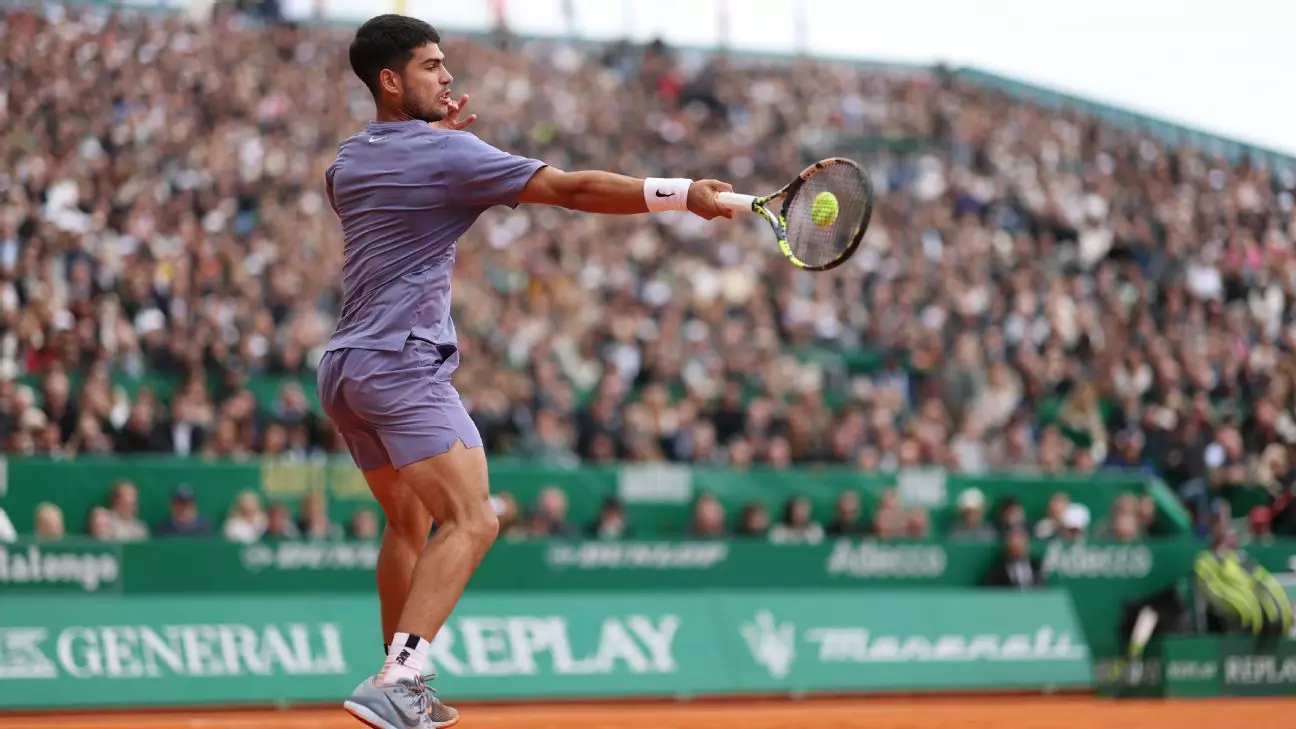Carlos Alcaraz, the prodigious 21-year-old Spanish tennis sensation, added a monumental accolade to his burgeoning career by clinching the Monte Carlo Masters title. His victory over Lorenzo Musetti, finalized with a scoreline of 3-6, 6-1, 6-0, not only marks his sixth Masters 1000 title but also elevates him to the No. 2 position in the global tennis rankings. It’s a remarkable achievement for someone so young, showcasing a mixture of talent, resolve, and promise that very few athletes possess at such an early stage in their careers.
Impulse of Injury: A Unfortunate Battle
However, the thrill of Alcaraz’s win was underscored by a somber note, as his opponent, Lorenzo Musetti, struggled with a leg injury that became increasingly apparent as the match progressed. Musetti’s disability to maintain pace, particularly in the decisive third set, essentially robbed tennis fans of witnessing a fully competitive match. While Alcaraz demonstrated his prowess on the court, the context of Musetti’s injury raises questions about the nature of victory in sports — should outcomes affected by injury be seen as legitimate triumphs?
Musetti, who has made great strides in his career, was appearing in his inaugural Masters 1000 final, aiming to make a lasting impression. Despite showcasing resilience by winning the first set, his physical limitations in the latter stages were impossible to overlook. Alcaraz, with a sense of sportsmanship, expressed disappointment over the circumstances of the match, indicating a maturity that transcends his age. “This is not the way I want to win a match,” Alcaraz remarked, emphasizing the complexity of emotions in competitive sports, where empathy often intersects with ambition.
Resurgence of a Champion
What’s particularly fascinating about Alcaraz’s journey leading up to this victory is his ability to bounce back from adversity. Not too long ago, he faced disappointment during the Miami Open, where he exited in the first round. Reflecting on this comeback narrative, it’s evident that Alcaraz’s trajectory mirrors the ups and downs that many elite athletes experience. This resilience becomes a foundational element of not just his career but the legacy he is beginning to create.
In Monter Carlo, Alcaraz showcased not only his remarkable skill set but also his psychological fortitude. After losing the first set, he came back storming in the second and never looked back, securing an impeccable performance in the final set. His two breaks of serve in the second set were not merely fortuitous; they were reflective of strategic adjustments that underline his growth as a player. The match embodies the transformative nature of sport — the capacity to learn, adapt, and ultimately conquer challenges, irrespective of previous setbacks.
Cultural Significance and Future Aspirations
Alcaraz’s win also elevates the profile of Spanish tennis at a time when the sport’s hierarchy is shifting. The legacy of greats like Rafael Nadal still looms large, but the emergence of young talents like Alcaraz signifies the evolution of tennis culture in Spain. As he joins the ranks of elite players, one can only wonder how this victory might influence the future directions of tennis, not just in Spain but globally.
This triumph serves as a vital chapter in Alcaraz’s career, affirming his status as a leading figure in tennis while reminding spectators of the spirit of competition where victories are often overshadowed by the circumstances that surround them. Ultimately, it’s about not just winning, but winning with integrity and respect for the sport and its participants.


Leave a Reply